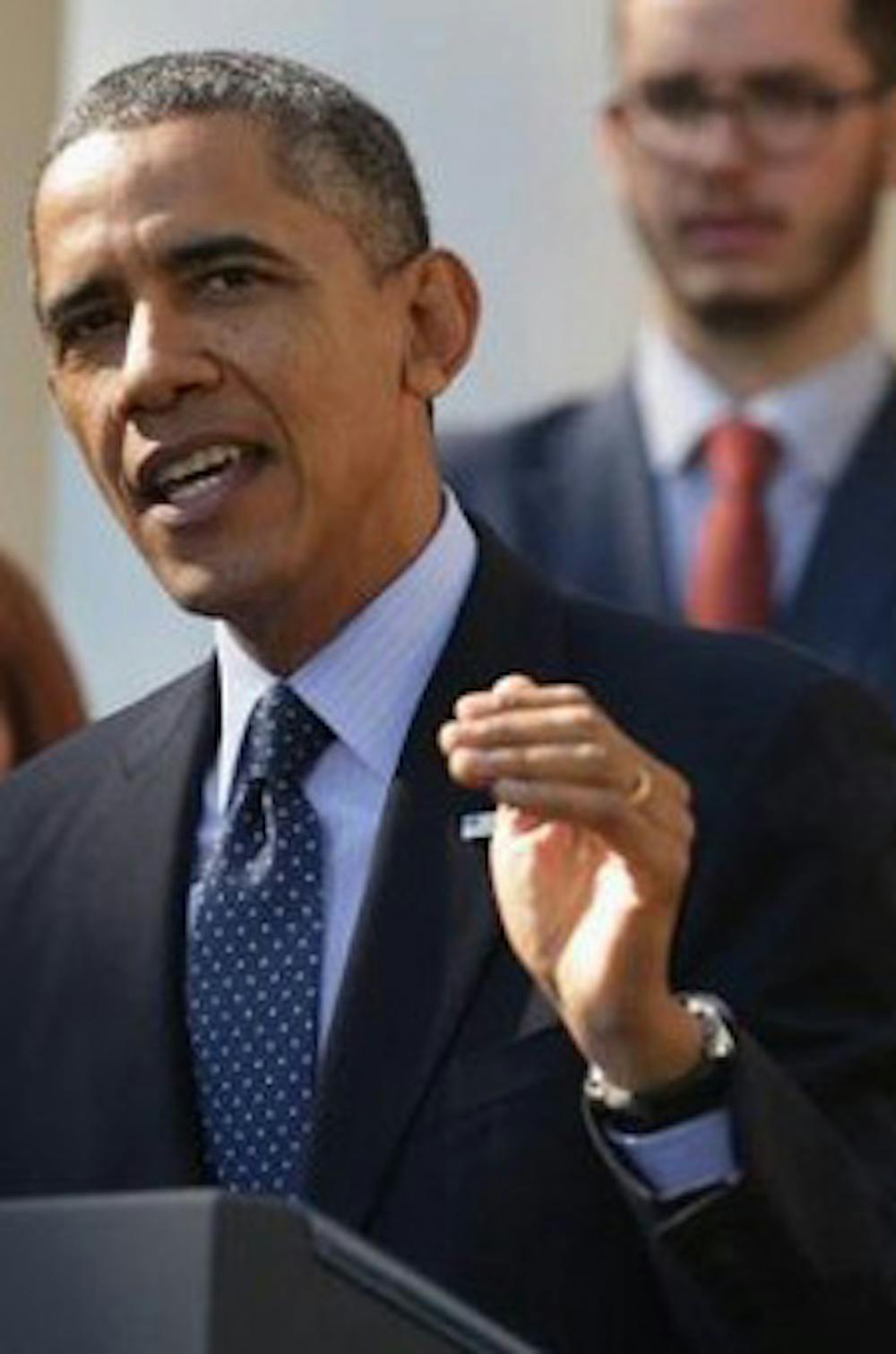Abigail Pollock | Echo
Pay attention, Taylor community: There are 158 days left. This is not a graduation countdown, nor a memo for the days until Spring Break. This is the number of days left for open insurance enrollment in the new Health Insurance Marketplace, and it's plastered on every page of the new Healthcare.gov website.
Is this a number students should pay attention to?
It depends on each student's insurance situation.
Taylor's policies encourage all students to have coverage, but this is not mandated. Though the majority of enrolled students are insured, some students do not have health insurance.
Senior Nathan McCrea had the student insurance Taylor provided until they declined to offer it this year.
"I'm not upset that Taylor stopped offering insurance, because I didn't think it provided the best coverage," McCrea said.
McCrea gave several reasons he has not signed up for new health insurance, including his financial situation as a working college student, which puts him somewhere in the middle of the typically-uninsured demographic in the U.S.
"I don't even pay taxes on my income. I could probably qualify for Medicaid benefits, but knowing that the welfare programs exist for those in poverty situations, I'm not sure I feel justified in taking that money. So if I can't afford insurance, but I'm blowing through $40,000 a year on education, what bracket does that put me in?" McCrea asked.
Students like McCrea represent the uninsured citizen that the Affordable Care Act (ACA) targets with its health care reform.
A key initiative of the ACA, otherwise known as "Obamacare," is the Health Insurance Marketplace, which opened its website Oct 1. This Marketplace is meant to give people greater freedom in selecting inclusive and affordable insurance plans, while reducing the number of people who depend on taxpayer dollars for uninsured medical care.
Beginning in 2014, U.S. citizens without health insurance will be charged an annual income-based penalty beginning at $95 (or 1 percent of family income, whichever is greater) and rising dramatically in subsequent years.
For students without taxable income, this penalty may not be of concern, as the fee will supposedly be added to tax return forms and enforced by the IRS. Additionally, "individuals will be exempt from the health insurance coverage requirement and penalties if . . . the minimum amount you must pay for premiums is more than 8 percent of your household income," according to USA Today.
As such, the insurance marketplace may not affect many students, most of whom are dependents covered under their parents' insurance policies.
However, new regulations under the Affordable Care Act affect both old and new insurance provisions. For example, the new health law prevents insurers from using health history to set rates, so that pre-existing conditions will not raise premiums or bar anyone from acquiring health insurance, according to Healthcare.gov. Another policy change allows children to remain on their parents' plan until age 26, meaning that after graduation students have a few years to figure out health insurance and how to pay for it.
Some uninsured students who are graduating soon can plan on receiving health insurance from an employer. But the insurance marketplace may still be worth looking into, since it offers reduced rates and more comprehensive plans than job-based insurance.
The insurance marketplace website has been experiencing a variety of severe technological difficulties since the Oct. 1 enrollment startup. Many citizens have been unable to register for an account or have received confusing error messages upon logging in-problems which have been blamed on the high level of traffic to the website.
President Obama gave an address Oct. 21 on the benefits of the ACA insurance reform. He emphasized the success of the marketplace in helping people save money on insurance and promised to find a resolution to the persistent website issues, according to NPR..
"Nobody is madder than me that the website isn't working as it should-which means that it's going to get fixed," Obama said.




